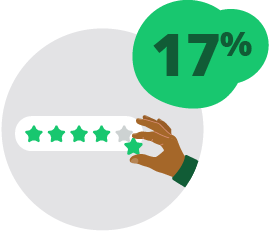Top 10 Takeaways from 2024
Wiley Workplace Intelligence Annual Report
By Elizabeth Johnson & Tracey Carney EdD
2024 turned out to be a game-changing year for how we work. AI, generative tech, and flexible work models are completely transforming the way companies think about talent and productivity. Wiley Workplace Intelligence, have been diving deep into these shifts, tracking the most exciting workplace trends as they emerge.
Their annual report cuts through the noise to bring you the real insights driving workplace innovation in 2024 – from how AI is reshaping skills to the latest thinking on workplace flexibility and creating amazing employee experiences.
10. Feelings Are Conflicted on the Return to Office Reality
Despite concerns about returning to the office (RTO), employees are nuanced in their perspective. Data reveals that 87% recognise positive aspects of in-office work, while simultaneously, 80% advocate for location flexibility.
Organisations can successfully manage this transition by prioritising clear communication, transparently explaining RTO rationales, and maintaining adaptable policies that respect employee preferences. The key to a smooth RTO lies in building and maintaining employee trust through a consistent and clear approach.

87% believe there are positive aspects to working in the office.

80% support work location flexibility, specifically offering remote options.
Talk to us about the best ways to ease the return to office transition
9. Glossing Undermines Organisational Trust
Glossing, or toxic positivity, is the workplace habit of sweeping real challenges under the metaphorical rug with forced cheerfulness—and our research reveals its pervasive impact. While 78% of employees feel most comfortable expressing their feelings to direct managers, a staggering 80% believe organisational leaders tend to minimise or ignore challenges, effectively “glossing over” critical workplace issues.
This dynamic creates a fragile trust ecosystem where transparent communication is desired but rarely achieved. The result is a workforce caught between wanting genuine dialogue and experiencing superficial reassurances that ultimately undermine workplace confidence during times of organisational change. This data underscores the critical role of bridging communication gaps and maintaining employee trust during periods of transition.
How to Fight Glossing and Build Trust

Encourage feedback

Act on feedback given

Share resolutions to common issues

Have an approachable leadership team

Regular check-ins with managers
Talk to us about how toxic positivity at work undermines morale
8. AI Is Causing a Staggering Amount of Workplace Stress
The integration of artificial intelligence (AI) into the workplace is bringing about significant changes, accompanied by a mix of emotions. Our research shows that an astounding 96% of employees are experiencing some level of stress related to workplace changes, with over half reporting moderate anxiety as they navigate the complexities of AI adoption.
As AI transforms workplaces, employee stress is reaching critical levels. Despite strong managerial support—81% of employees believe their managers are supportive—there’s a notable gap in practical AI implementation. Only 60% of workers feel their managers truly understand how to integrate AI effectively into daily workflows, leaving nearly 40% feeling uncertain and anxious about these technological shifts.
This disconnect underscores the urgent need for clear, strategic AI adoption that goes beyond good intentions and addresses real workplace concerns. Here are three key tips to help organisations manage this transition effectively:
3 Key Tips for Managing AI Integration

Provide Clear Use Cases

Enhance Transparency and Communication

Invest in Manager Training
Talk to us about the human side of artificial intelligence
7. Professional Success Looks Different for Everyone
Professional success is no longer just about climbing hierarchical ranks. Our research reveals a profound shift in how employees view their careers, with 62% feeling no pressure to pursue traditional promotions. Instead, workers are prioritising meaningful contributions, work-life balance, and personal satisfaction. Organisations must recognise that engagement isn’t about constant upward mobility, but about creating environments where employees feel valued, can grow their skills, and find genuine fulfillment in their current roles.
What Professional Success Looks Like

Contributing to organisational success

Work/life balance

Personal satisfaction with job
While not everyone feels the pressure to climb the corporate ladder, there were a high number (65%) of respondents who shared that they are planning to pursue leadership opportunities within their organisation. This is a great sign that organisations are creating cultures where people want to stay and grow.
Talk to us about transforming complacency into contentment wih top tips for engaging your people
6. Employees Can Experience Both Boredom and Burnout Simultaneously
In today’s workforce, “bored” and “burned out” are more than passing feelings—they’re systemic challenges threatening individual and organisational health. Boreout, a toxic combination of boredom and burnout, emerges as a critical workplace phenomenon with far-reaching consequences.
The data reveals a stark disconnect: While 90% of managers believe their teams are challenged, only 33% of employees actually feel challenged. This misalignment manifests in alarming statistics—25% of non-managers and 14% of managers report feeling bored at least twice a week, with 49% of managers experiencing severe stress.
While severe stress among individual contributors was lower, it still affected over a quarter of those surveyed. This makes sense given their higher levels of boredom and suggests that people managers, often unintentionally, act as gatekeepers. Without effective management training, managers may think they’re doing the right thing by taking on more work, but struggle to delegate and empower their teams. Employees trapped in unchallenging roles risk chronic disengagement, potential mental health challenges, and an increased likelihood of turnover.
Top 5 Tips to Battle Boreout
- Provide opportunities to learn new skills or spend time on passion projects
- Offer stretch opportunities that expand responsibility and autonomy
- Promote work/life balance
- Have clear communication
- Provide opportunities for leadership development
Talk to us about “boreout” at work, and how to combat the workplace trend that’s draining your culture
5. An Inclusive Workplace Empowers Employees to Give Their Best
One of the most important ways organisations can stay competitive and reflect their diverse and growing workforce is by prioritising inclusion. Inclusion means creating an environment where all employees feel valued, respected, and supported, regardless of their differences.

2/3 of people feel comfortable asking for accommodations at work
It’s encouraging that two-thirds of employees feel comfortable asking for accommodations at work, and the majority report having inclusive work environments. However, it’s crucial for organisations to continue advancing in this area. While 87% of people feel their ideas are considered by others, only 54% believe leadership reflects the diversity of the workforce. Despite this, most employees recognise their organisations are making genuine efforts to develop meaningful diversity policies.
These initiatives are creating inclusive environments where employees feel empowered to contribute their best work, driving improved performance, productivity, and overall organisational success.
Talk to us about the vital role of inclusion in the workplace, and learn top insights from organisations today
4. Human Connection Is Crucial to a Thriving Workplace
As the workplace becomes more digital, technology can’t replace the fundamental human need for connection. Our research reveals that people do feel a sense of connection at work with 78% of respondents saying that they feel connected with their coworkers. This suggests that, despite the rise of technology, human connection remains a vital aspect of the workplace experience.
State of Connection at Work

Feel connected with their coworkers

Enjoy team-building activities

Enjoy connecting out of the office

Have at least one close friend at work
Further, we found that 59% of employees consider workplace friendships a critical factor in their decision to stay with a company. Beyond mere productivity tools, these personal relationships are the cornerstone of job satisfaction, creating a culture of belonging and deep engagement that no software can replicate.
Talk to us about the human connection – the crucial secret to thriving in the digital age
3. AI Cannot Replace Human Soft Skills
In a world increasingly driven by artificial intelligence, the human touch has never been more critical. Our survey reveals that 80% of respondents believe soft skills are more important than ever, sending a clear message: a bot cannot replace the nuanced, empathetic nature of human connection.
AI might process data efficiently, but it can’t understand that a colleague is caring for an ailing family member, recognise when a boss is overwhelmed, or appreciate a team member learning a new skill. These subtle, deeply human insights are what transform workplaces from transactional spaces to meaningful communities.
Top 3 Most Important Soft Skills

Communication

Leadership

Adaptability
Looking ahead, communication and leadership emerge as the top skills needed in our technological landscape. Effective human communication—with its ability to provide clarity, solve complex problems, navigate conflicts, and create positive cultures—remains irreplaceable. The individuality we bring to our jobs is what truly makes strong teams and exceptional workplace cultures.
Talk to us about taking the person out of interpersonal – why AI can never replace soft skills
2. A Great Workplace Culture Makes All the Difference
As workplace dynamics continue to evolve, employees are redefining what makes a job truly rewarding. The “emotional paycheck” encompasses non-financial benefits that go beyond traditional compensation, including work flexibility, positive culture, and personal wellness perks. These intangible gains—like flexible hours, meditation app subscriptions, and supportive work environments—are now crucial to employee motivation and satisfaction.

Work Flexibility

Financial compensation

Employee perks (e.g. company mobile)

Work location
Further, our research shows that in today’s competitive job market, a good culture makes all the difference. A staggering 77% of employees consider organisational culture the most critical non-financial factor in their job decisions, with 73% willing to choose a great workplace over a higher salary. This shift represents more than just workplace trends—it’s about creating meaningful experiences that make employees feel valued, connected, and inspired to excel.
Talk to us about the emotional paycheck – going beyond traditional compensation
1. Soft Skills Boost Employee Performance
Soft skills training is often overlooked in today’s workplace. Even though it’s clearly important, only 35% of organisations offer thorough soft skills programs. This is surprising because 63% of employees say that developing these skills helps them perform better at work. Examples of soft skills training include leadership development programs, conflict resolution training, and emotional intelligence courses.

63% of respondents said soft skills development positively impacted performance.
How the training is delivered matters a lot. In-person training is especially effective, with 51% of people finding it very or extremely helpful. Beyond improving skills, professional development is also key to keeping employees. Many workers and managers list the lack of such opportunities as a top reason for leaving their jobs. This shows a big gap between what employees want and what organisations provide, highlighting the need for better workforce training strategies.
Talk to us about soft skills, big impact – elevating workplace satisfaction
In our 2024 research, one insight stood out: workplace culture is the secret to employee engagement. It’s not just about paychecks—it’s about creating an environment where people genuinely want to show up, grow, and contribute.
The key to unlocking this potential lies in developing critical interpersonal skills. Our suite of professional solutions provides a structure and common language to help empower entire organisations with the skills needed to get to the next level. From building better teams with The Five Behaviors® to improving understanding to create engaged, collaborative, and adaptive cultures with Everything DiSC® on Catalyst(Opens in a new window), we have innovative solutions that help make the workplace a better place.
Wiley Workplace Intelligence conducts in-depth research on key workplace issues by gathering insights from individual contributors, managers, and leaders and analysing these findings to provide actionable solutions that we’re happy to share with you.
©2023 by John Wiley & Sons, Inc. All rights reserved.
Get in touch
Let us help you fix the challenges in your organisation
Get in touch
Let us help you fix the challenges in your organisation